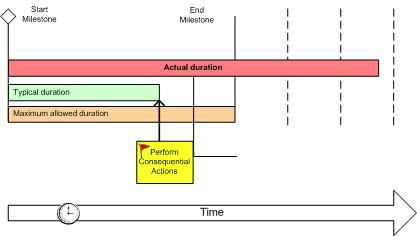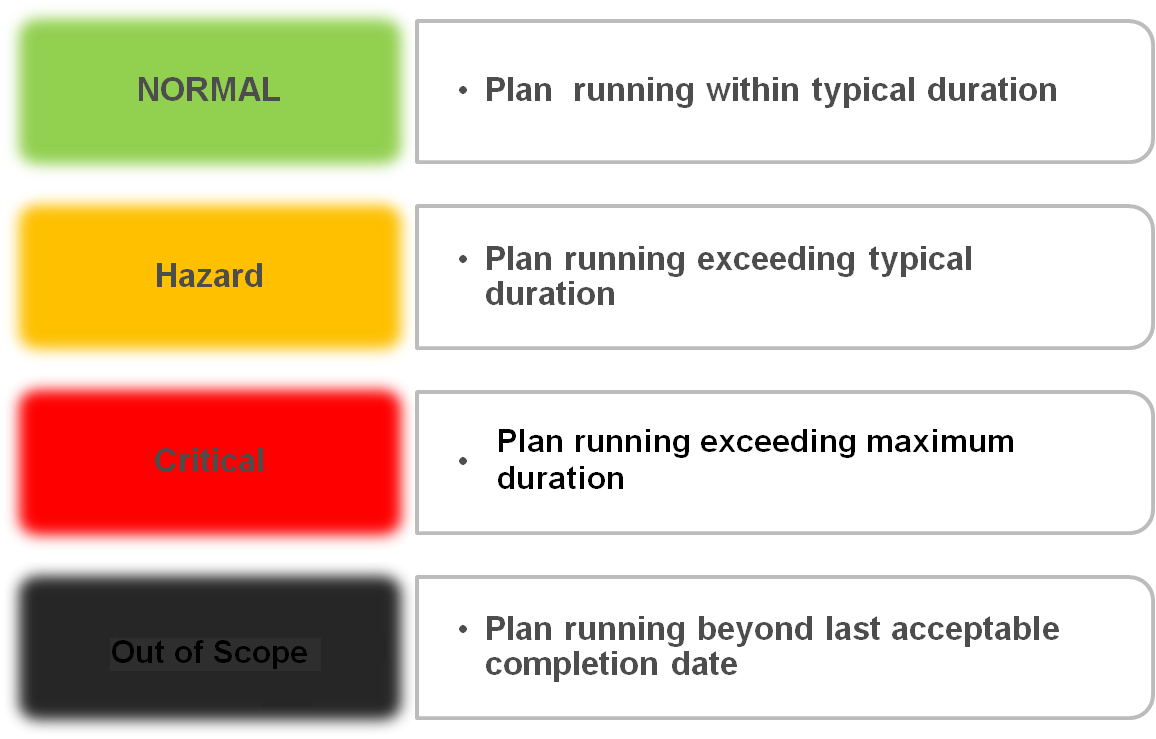Jeopardy Management for Plan Task
A simple process component that has only start and end milestones consists only of one section, but more complex components are made up of several sections. A section is the interval between two milestones.
At the level of process component sections, you can configure jeopardy conditions that enable you to detect both if the task has taken longer to complete than it must have, and also to detect if a task that is under way or has not yet started is predicted to take longer to complete than scheduled.
Jeopardy manager allows you to monitor the following durations:
- Typical Duration: you can specify this value when you create a process component, or when you define the plan task that uses the component in an execution plan.
- Maximum Allowed Duration: the maximum amount of time the activity represented by the task can take before it is considered to have overrun. You can specify this value when you create a process component, or when you define the plan task that uses the component in an execution plan.
There are critical paths identified in execution plans, constructed using the typical and maximum durations of the plan tasks included in those plans. If one of the process component sections being monitored has not completed before its defined typical duration, a monitor event is triggered (consequential action is performed). If the section has not completed before the end of its maximum allowed duration, another monitor event is triggered. For Example, a plan has taken longer than expected/predicted. The plan task has exceeded its typical duration, its maximum duration, and two subsequent monitoring intervals. A monitor event has been fired at each stage to notify you of the following:


